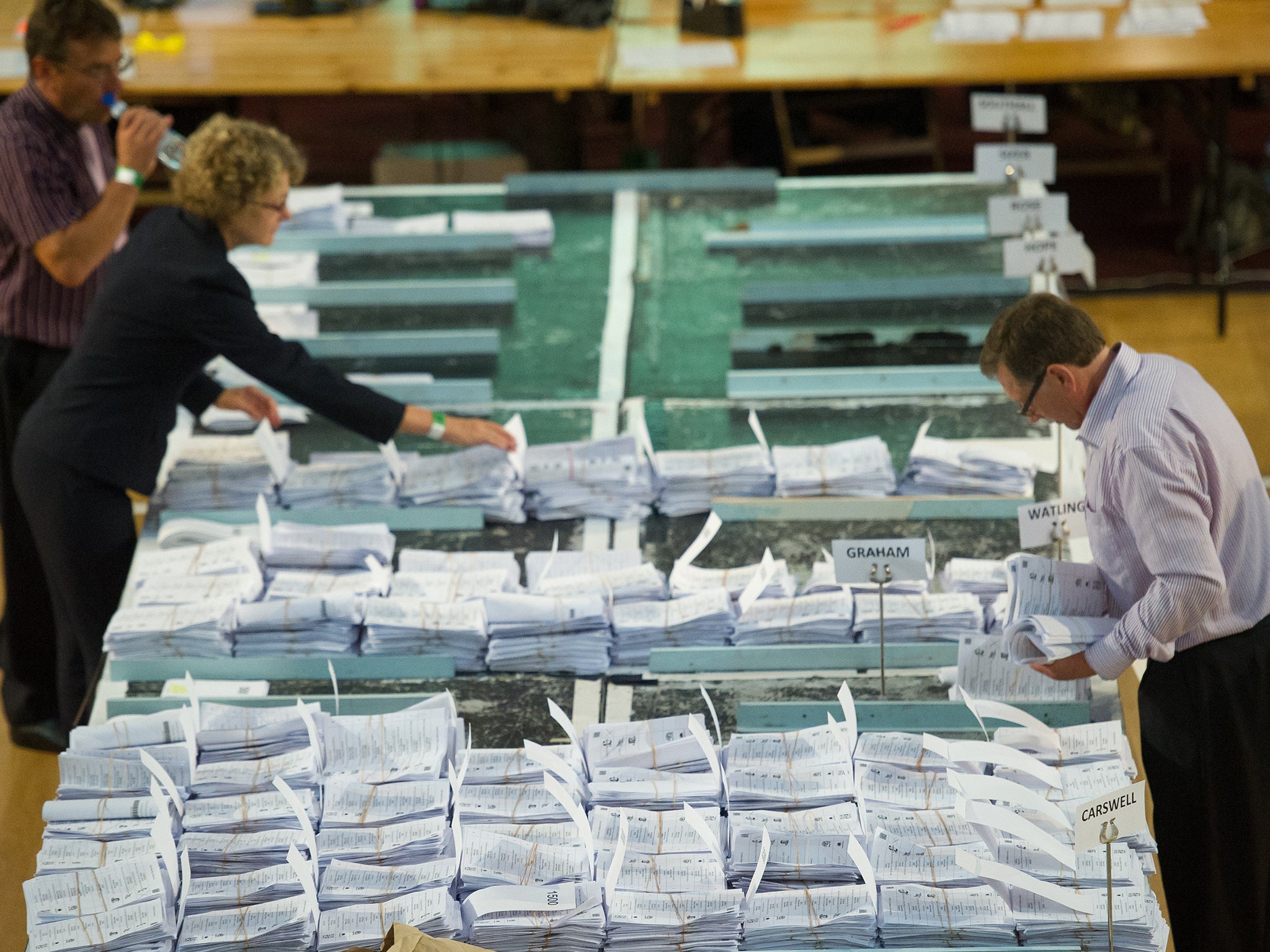General Election 2015: My vote won't make a blind bit of difference, and neither will yours
Why hasn’t reform of our voting system been part of this campaign?


I make no apologies for returning to a pet subject, one which has played absolutely zero part in this election campaign, which no politician (even those who believe in it) has dared to mention, but which goes to the very essence of our democracy, and is the one thing which would create a fairer society, or at least a fairer system of government. Why hasn’t reform of our voting system been part of this campaign?
All right, it’s not exactly an urgent issue which directly affects people’s lives like health, education or immigration.
But it never will be, and that’s simply not a good enough reason to bury it as a topic for discussion. So next week, we’ll go to the polls – or at least a diminishing number of us will – and the morning after we’ll complain that we didn’t get what we voted for.
I will be voting on Thursday in the constituency of Cities of London and Westminster, which is the 477th (out of 650) most marginal seat in the UK. In other words, the chances of the returning officer inviting anyone other than a Conservative to represent the constituency in the next parliament is about as likely as Elvis Presley getting elected in Oswestry North. My vote will not make a blind bit of difference, and the same is true for the vast majority of the electorate.
From time to time, the issue of electoral reform interposes itself inconveniently in our political discourse, but because it is not in the interest of the two major parties to change a system that has been to their benefit for centuries it never properly takes root. The fact that it would serve the British public better and increase engagement in politics does not appear to be an important consideration.
In the wake of the 2005 election, The Independent was at the forefront of a campaign for voting reform, and tens of thousands of readers supported us. It was clear that this, contrary to what our leaders have told us before and since, was something we cared about. It was an issue that became almost the raison d’être of every manifestation of the Liberal party down the decades, but the minute they got into power, scarcely a word was heard on the subject.
While each respective government has tampered with the electoral boundaries to suit their own purposes, no one was interested in change that would benefit us.
This is a very short-sighted policy, given that the net result is that you have an electorate who feel ever more disenchanted with the political process, and who are turning away from the major parties.
In the 1950s, 95 per cent of those who voted chose either a Labour or Conservative candidate. By the 2010 election, this figure had dropped to 65 per cent, and in next week’s poll that figure is bound to be smaller.
The experience of the Scottish referendum was instructive. Yes, it was a single issue poll which concentrates the mind, but the vibrancy of the campaign, and the passionate nature of the debate, was due in no small way to one thing: every single vote counted. If politics is not to die, we have to rise up and demand that for Westminster elections.
Join our commenting forum
Join thought-provoking conversations, follow other Independent readers and see their replies
Comments
Bookmark popover
Removed from bookmarks